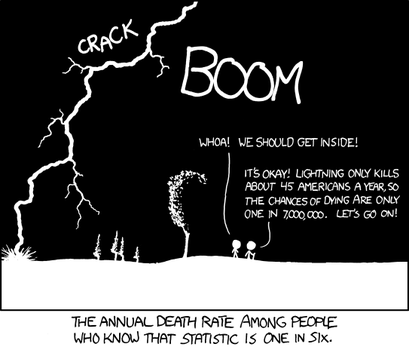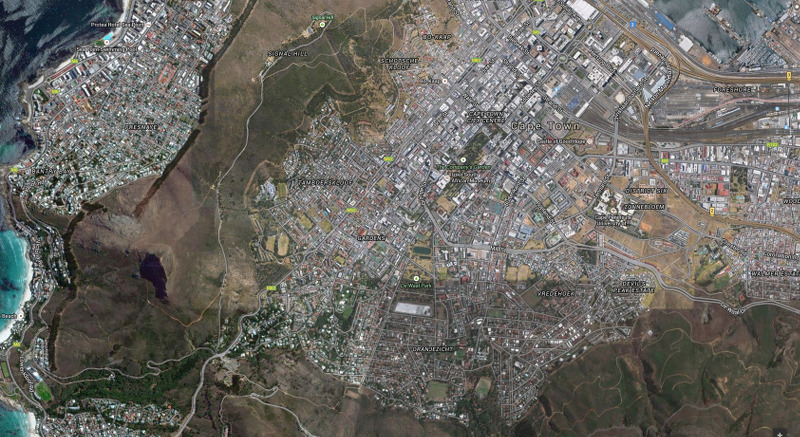|
Every now and then one writes something, and the next day you find the essence expressed so much better in a song!
0 Comments
 http://xkcd.com/795/ http://xkcd.com/795/ Easter is a time when people start saying "Is this all really true, is it relevant, and why bother when I already have so many other troubles to deal with?" Easter is a time when latent doubts bubble to the surface. Often their (my?) questions are rooted in "if God exists why would he create me with this [fill in your problem]" What does one say when someone is questioning the truth about the meaning of life, about God and where we fit in? Recently I've been having exchanges with individuals, or encountered people who are busy drifting away, or have chosen to stop believing. Many people don't like to engage with those who are drifting, and react with simplistic and hurtful judgements. Some find that their own doubts are uncomfortably exposed, and some simply ignore the discussion and walk away fearful of their own thoughts. I too have doubts, but I prefer to take these moments as valuable (and sometimes painful) opportunities to re-interrogate the evidence, to encourage (myself), and to choose all over again. In my real-world job I deal with scientific uncertainty ... mathematically, qualitatively, intrinsically. It's hard because uncertainty is ... well, its uncertain: there's a simple uncertainty about knowing what's true, but far more difficult are uncertainties about whether a truth is important, is it relevant to my situation, what should my response be, and the consequences if I ignore it. I manage these uncertainties in my work - there are techniques and methods. But outside of my job's focus it becomes much harder to respond to both my own and other people's uncertainties about life, meaning, and if there is a God. Nonetheless, I think there are honest things we can do (made all the more easy if there is someone trustworthy to walk the path with you). Easter is a special time to for this. 1. Remember. If I once believed something, why did I believe? Did I examine the evidence that led me to a conclusion, or maybe was there an experience that opened eyes to a new truth. How did it change my life? For some people that moment of realization came through their intellectual honesty: C.S. Lewis called himself the most reluctant convert in history, because he could no longer deny the evidence (and he really didn't like the implications at first). Then there was Count von Zinzendorf who came to believe in a relational God while looking at a painting - a mystical experience. However it started, we all have our history of experience - good and bad. I can remember key times in my history: of intellectual acceptance, times of healing, of my daughter nearly dead, of deep joy as understanding awoke, and many times of an outward and inward awareness that God was at work. I can also remember dry, dry periods when I was like a desiccated plant that has lost it's memory of water, where God seemed absent from the picture. Remember. 2. Be honest. Experience is just that, its experience, not an explanation. I had to realize that my belief in something does not change reality. My desires for a God of a certain type, for a God who repairs me, or even my sometime-desire for there to be no God, has zero influence on the actual existence of God. I had to realize that if God exists, by definition he is deserving of my attention whether or not he meets my requirements or desires. Its like the fact that gravity attracts, independent of whether I like it or not, or whether I believe it exists. Likewise, God's existence is NOT conditional on my doing anything, wanting anything, needing anything, or receiving anything. I might not like that he exists, I might not like that he seems silent sometimes, but that's an altogether different issue. Be honest. 3. Question. If Jesus is who he says he is (unless he's mad, or bad as CS Lewis puts it), then does that mean I can expect my life to be fixed. Evidence tells me no - at least not everything. So why bother with him? Because if the story is true, then he's certainly bothering (with) me! Question. 4. Evaluate. Don't just accept something because someone says it's so. Everything has some measure of uncertainty. The real question is not if there is uncertainty (do you know with certainty that you are not actually an avatar in someone’s computer program?), the real question is: what is likely? What does the evidence say is the most rational explanation (and I'll say this: atheism is NOT the most rational explanation!). Is it more likely than not that there is a God (evidence says to me that yes it is very likely), and can I be confident about that (experience and reason says to me, yes, I can). If so, evaluate Easter! If the above leads me to conclude that God exists, is real, and relevant, then the question becomes all about my response, not about what I can get. The question is simply "Will I ignore him?" EASTER: (another) chance to ignore, examine, or connect? Jesus didn't say "Follow Christians", he said "Follow me" ("Christians", and religion, can be a real pain in the neck - maybe from the contortions of bending into a stereotype?) I would suggest only two certainties: I will always have questions, and change is the only constant. Yet paradoxically, Jesus stands as fixed marker, surrounded by evidence, with incredible claims, and eternal consequences. EASTER: His act, my choice. Postscript 1: I still don't know what to say to someone in the midst of doubt. There are platitudes aplenty, but without the chance to engage in discussion, I can say little more than "I empathise, I know the feeling, and all I can do is encourage you to consider the consequences of 'Is this true?'"
Postscript 2: I think there are amazing resources that walk through the inevitable questions and doubts - but they ideally need discussion - no question should be taboo. I would point to the Alpha Course (best done in person, but one can listen too), or one of my favourites is the Life Course (again best in person; but the talks are excellent - archived on our church's web site here). Postscript 3: They say there only two certainties in life: death and taxes. But that's not really true is it, there is much about death that is uncertain, such as when, where, how, and what happens next? My mom’s death (below) was a surprise, and so was the means (murder) - no-one ever anticipated it so soon, so sudden, and so tragically. Yet her funeral was one of the most joyful experiences I have known because of my (believed) certainty in her future. The grief was hard, but would have been so much harder without that knowledge of certainty. Recently I was talking with three others from church, and trying to make a point about connecting with our community - asking, how are we relevant?
I was saying that if we want to be relevant, then there are two sides to the coin: to be relevant we need to understand the daily experience of those outside our church but who are part of our community, and we need to be able to see our church the way they see it. Relevance means speaking truth into the important issues of peoples lives, and we can't do that without understanding their experience, or without understanding how they perceive us. I argued that, to the extent we fail to wrestle with these two challenges, so we fail in our great commission. We can gain this knowledge in two ways: we can do research on the nature of our community, and we can get out there and listen to them in the street, in the bars and restaurants, in their homes, and in their workplace. So then of course I had to go and do some research - I want to be part of the solution, not just point out a problem. Here's my start to hopefully get you thinking. I took the 2011 census results for the suburbs that surround us: The CBD, Gardens, Oranjezicht, Tamboerskloof, and Vredehoek.
What does this tell us? It says that we live in a community that is dominated by well educated, working, young professionals who live as couples / partners, or perhaps as house mates. They're probably a fairly transient community as the majority are renting. Proportionally there are not many children and not many old people. This means our community is mostly modern and mobile in both culture and lifestyle (these conclusions, of course, need to be backed up with actually talking to people). In terms of general characteristics this can tell us a lot, if we want to be serious about engaging with the community. To go back to where I started. If we, as StB, want to be relevant to this community, if we as individuals want to best connect with them, then we need to ask ourselves some very specific questions.
To be Jesus to this community we need Jesus' eyes and understanding, we need his compassion. A key part of this is, I suggest, gaining understanding. One small step at a time, one change to what I do, one person spoken to. Anyone up for the challenge? |
Important: The views expressed on this blog do not necessarily reflect the official position of our church
Like to Write? Archives
June 2015
|



 RSS Feed
RSS Feed

